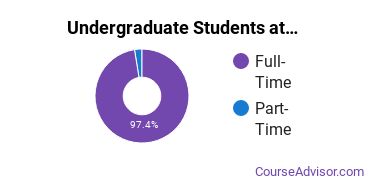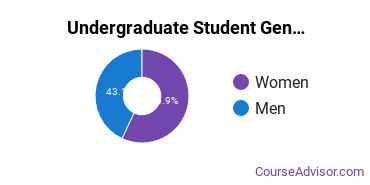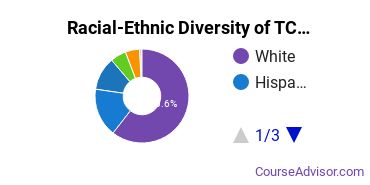The College of New Jersey Overview
The College of New Jersey is a public institution located in Ewing, New Jersey. TCNJ is located in a safe and convenient suburb.
What Is The College of New Jersey Known For?
- The highest award offered at TCNJ is the post-master's certificate.
- In a recent academic period49% of the faculty were full-time.
- A student who earns a bachelor's degree from TCNJ makes roughly $73,323 a year. This is 80% more than their peers from other colleges and universities.
- The average TCNJ student graduates in 4.1 years. That's better than the national average of 4.4 years.
Where Is The College of New Jersey?

Contact details for TCNJ are given below.
| Contact Details | |
|---|---|
| Address: | 2000 Pennington Road, Ewing, NJ 08628-7718 |
| Phone: | 609-771-1855 |
| Website: | www.tcnj.edu |
How Do I Get Into TCNJ?
You can apply to TCNJ online at: https://admissions.tcnj.edu/apply/
Admission Requirements for TCNJ
| Submission | Required? |
|---|---|
| High School GPA | 5 |
| High School Rank | 5 |
| High School Transcript | 1 |
| College Prep Program | 5 |
| Recommendations | 5 |
| SAT or ACT Scores | 5 |
| TOEFL | 1 |
How Hard Is It To Get Into TCNJ?
Approximately 41% of accepted students are men and 59% are women. The acceptance rate for men is 62%, and the acceptance rate for women is 67%.
Average Test Scores
About 46% of students accepted to TCNJ submitted their SAT scores. When looking at the 25th through the 75th percentile, SAT Evidence-Based Reading and Writing scores ranged between 570 and 670. Math scores were between 570 and 680.
Can I Afford The College of New Jersey?
The net price is calculated by adding tuition, room, board and other costs and subtracting financial aid.
Student Loan Debt
It's not uncommon for college students to take out loans to pay for school. In fact, almost 66% of students nationwide depend at least partially on loans. At TCNJ, approximately 50% of students took out student loans averaging $10,030 a year. That adds up to $40,120 over four years for those students.
Explore Best Ranked Schools for You
The College of New Jersey Undergraduate Student Diversity

There are also 678 graduate students at the school.
Gender Diversity
Of the 6,898 full-time undergraduates at TCNJ, 43% are male and 57% are female.

Racial-Ethnic Diversity
The racial-ethnic breakdown of The College of New Jersey students is as follows.

| Race/Ethnicity | Number of Grads |
|---|---|
| Asian | 800 |
| Black or African American | 377 |
| Hispanic or Latino | 1,059 |
| White | 4,277 |
| International Students | 49 |
| Other Races/Ethnicities | 336 |
Geographic Diversity
New Jersey students aren't the only ones who study at The College of New Jersey. At this time, 12 states are represented by the student population at the school.
Over 20 countries are represented at TCNJ. The most popular countries sending students to the school are China, India, and Saudi Arabia.
The College of New Jersey Undergraduate Concentrations
The table below shows the number of awards for each concentration.
References
*The racial-ethnic minorities count is calculated by taking the total number of students and subtracting white students, international students, and students whose race/ethnicity was unknown. This number is then divided by the total number of students at the school to obtain the racial-ethnic minorities percentage.
- College Factual
- National Center for Education Statistics
- Image Credit: By Tomwsulcer under License
More about our data sources and methodologies.
